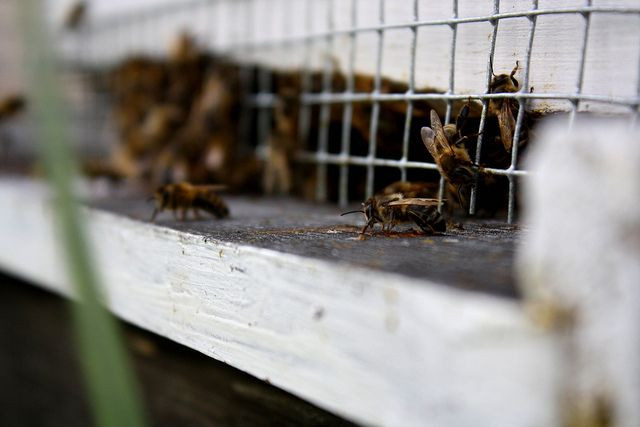Scientists Link Fungicides To Death Of Honey Bee Colonies, As US Crops Feel Effects Of Declining Pollination

The recent Colony Collapse Disorder has decimated around 10 million beehives, adding up to $2 billion in crop losses. The cause of the devastation has been a mystery to scientists, but researchers are now confident that fungicides are to blame for the ongoing honey bee deaths.
Researchers from the University of Maryland and the U.S. Department of Agriculture (USDA) have pinpointed a number of pesticides and fungicides that continue to ravage honey bee populations. Results of the analysis show that these harmful chemicals are contaminating pollen collected by bees, which are used to feed bee hives, Quartz reported.
The research team conducted its examination by taking samples from honey bees that pollinated blueberry, cranberry, cucumber, pumpkin, and watermelon crops up and down the east coast. On average, nine different types of pesticides and fungicides were identified that impeded on the bees' ability to fight off the deadly parasite Nosema ceranae.
N. ceranae is a lethal pathogen — found in European-born honey bees a few years back — that can lead to the death of an entire hive through direct contact with other bees. Considering U.S. honey bees are the descendents of European honeybees, they are just as susceptible to the parasite.
Lead researcher Dennis vanEngelsdorp said bees that were contaminated by certain chemicals that were designed to kill fungus were three times likely to be infected by the N. ceranae parasite.
According the USDA's data, bee pollination accounts for over $15 billion of the annual crop value. Around one out of every three crops fed food sources including almonds, vegetables, and different types of berries that are attributed to honey bee pollination.
VanEngeldsorp and his colleagues have advised farmers to avoid using pesticides and fungicides in areas pollinated by honeybees. Since it is unclear exactly which chemicals are implicated in the extermination of an entire beehive, all substances that pose a threat to humans should not be used in these areas.
Source: Pettis J, Lichtenberg E, Andree M, Stitzinger J, vanEngelsdorp D. Crop Pollination Exposes Honey Bees to Pesticides Which Alters Their Susceptibility to the Gut Pathogen Nosema ceranae. PLOS ONE. 2013.



























